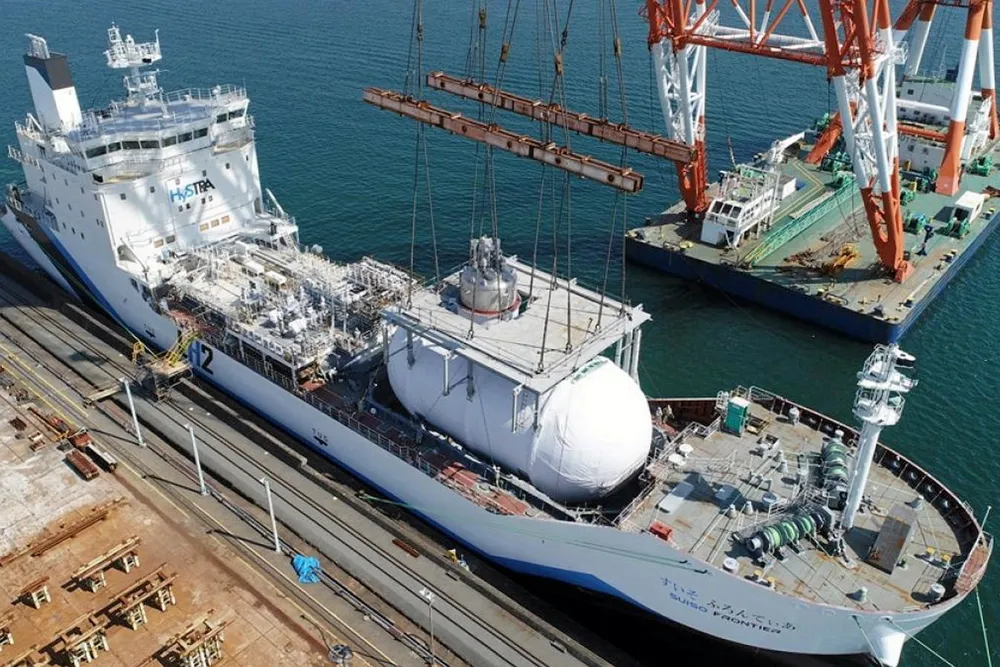Oil giant TotalEnergies to co-develop the world’s largest liquid-hydrogen carrier vessel
Ship would be able to transport 120 times more H2 in one journey than the only existing sea-going carrier

Ship would be able to transport 120 times more H2 in one journey than the only existing sea-going carrier
